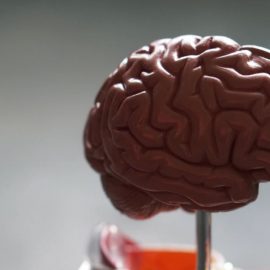
What is complex PTSD, and how is it different from PTSD? What are the best steps toward recovery?
Understanding complex PTSD requires looking at the physical and psychological impacts of abuse, neglect, and other kinds of repeated trauma. Thankfully, there are ways to recover from CPTSD, even for long-term sufferers.
Continue reading to learn more about this disorder, including how to heal from it.
What Is Complex PTSD?
Complex PTSD is short for Complex Post-Traumatic Stress Disorder. CPTSD is a psychological condition that comes from prolonged, repeated abuse or neglect, usually in childhood. Understanding complex PTSD requires a look at a wide range of abuse types; while many people associate this condition with physical or sexual abuse, people can also develop CPTSD from verbal and emotional abuse, or even emotional neglect. He adds that CPTSD resulting from a long-term pattern of mistreatment separates it from the more commonly known form of PTSD, which can happen after a single traumatic experience.
(Shortform note: The Diagnostic and Statistical Manual of Mental Disorders 5th Edition (DSM-5)—the standard that US healthcare professionals use to diagnose mental disorders—currently doesn’t recognize CPTSD as a separate condition from PTSD. Some US doctors are still fighting to get CPTSD recognized as its own condition, while others don’t think it’s necessary to create a new diagnosis for people who have suffered multiple traumatic experiences. However, the World Health Organization’s International Classification of Diseases, 11th Revision (ICD-11) does include CPTSD as a separate diagnosis.)
Physically Recovering From CPTSD
When dealing with complex trauma, recovery is also complex; it must address the physical, psychological, emotional, and social harm that long-term abuse or neglect causes. We’ll begin by discussing the physical aspects of recovery.
In addition to any long-term injuries a survivor might have from physical abuse, chronic stress from CPTSD can cause severe ongoing damage to their body. For instance, constantly being tense can injure their muscles, or insomnia can weaken their immune systems and make them heal more slowly; in many cases, survivors also harm themselves even more by self-medicating with alcohol or other drugs.
(Shortform note: The physical effects of long-term stress can be even more serious. According to Mayo Clinic, severe cases of chronic stress—which CPTSD certainly qualifies as—may even lead to deadly complications like a heart attack or a stroke.)
Helping Your Body Repair Itself
The good news about physical trauma is that the human body is very good at fixing itself. Therefore, by treating and managing their condition, people with CPTSD will heal from this damage naturally.
To speed the healing process, experts suggest taking classes in a practice that promotes relaxation—meditation, for instance—or improves flexibility, such as Tai Chi. This helps because by reducing stress and loosening their muscles, people with CPTSD can minimize further damage to their bodies and give themselves the chance to recover.
(Shortform note: Some mental health professionals say that yoga is an especially helpful practice for trauma survivors. Not only does yoga encourage relaxation and flexibility, it also helps people become more aware of their own bodies. This, in turn, helps them to understand how they feel and what they need at any given moment, which are things that many people with CPTSD struggle with. For instance, many yoga techniques involve paying close attention to one’s own breathing; practitioners breathe slowly and deeply and change poses while inhaling or exhaling. They must also listen to the signals their body is sending so they can push the limits of their flexibility without injuring themselves.)
Psychologically Recovering From CPTSD
Healing from the physical damage of trauma is an important step toward feeling better, but most of the effects of CPTSD are mental and emotional. Therefore, it’s equally important to learn the psychological symptoms of trauma and how to start recovering from them.
Complex trauma often leaves survivors with a distorted sense of self; they internalize the hurtful things their abusers said and come to believe them. For instance, someone who grew up being told that they’re stupid likely still believes it, even if there’s plenty of evidence to the contrary in their accomplishments.
(Shortform note: According to many psychologists, self-underestimation—undervaluing one’s own worth, as described here—is a common result of childhood neglect or abuse. Some parents actively harm their children’s self-esteem by insulting and belittling them (abuse). However, neglect can lead to the same result; young children often believe their parents are infallible, and therefore a neglected child will conclude that they (the child) must not deserve to be loved, rather than recognizing that their parents are in the wrong.)
In this section, we’ll examine two key parts of recovering from the psychological damage of complex trauma: reducing the tendency to blame and harshly criticize oneself and developing a sense of self-love and compassion.






